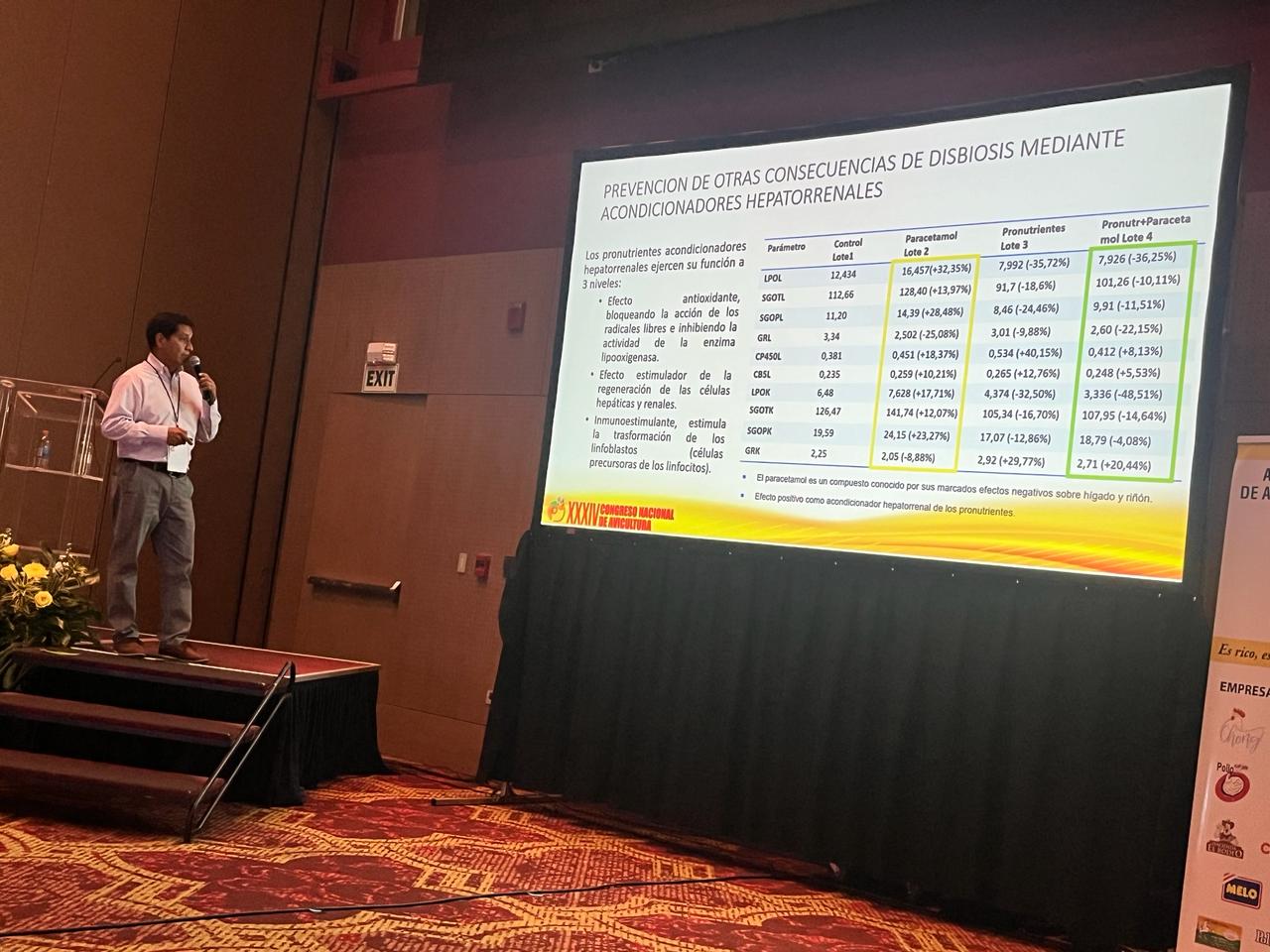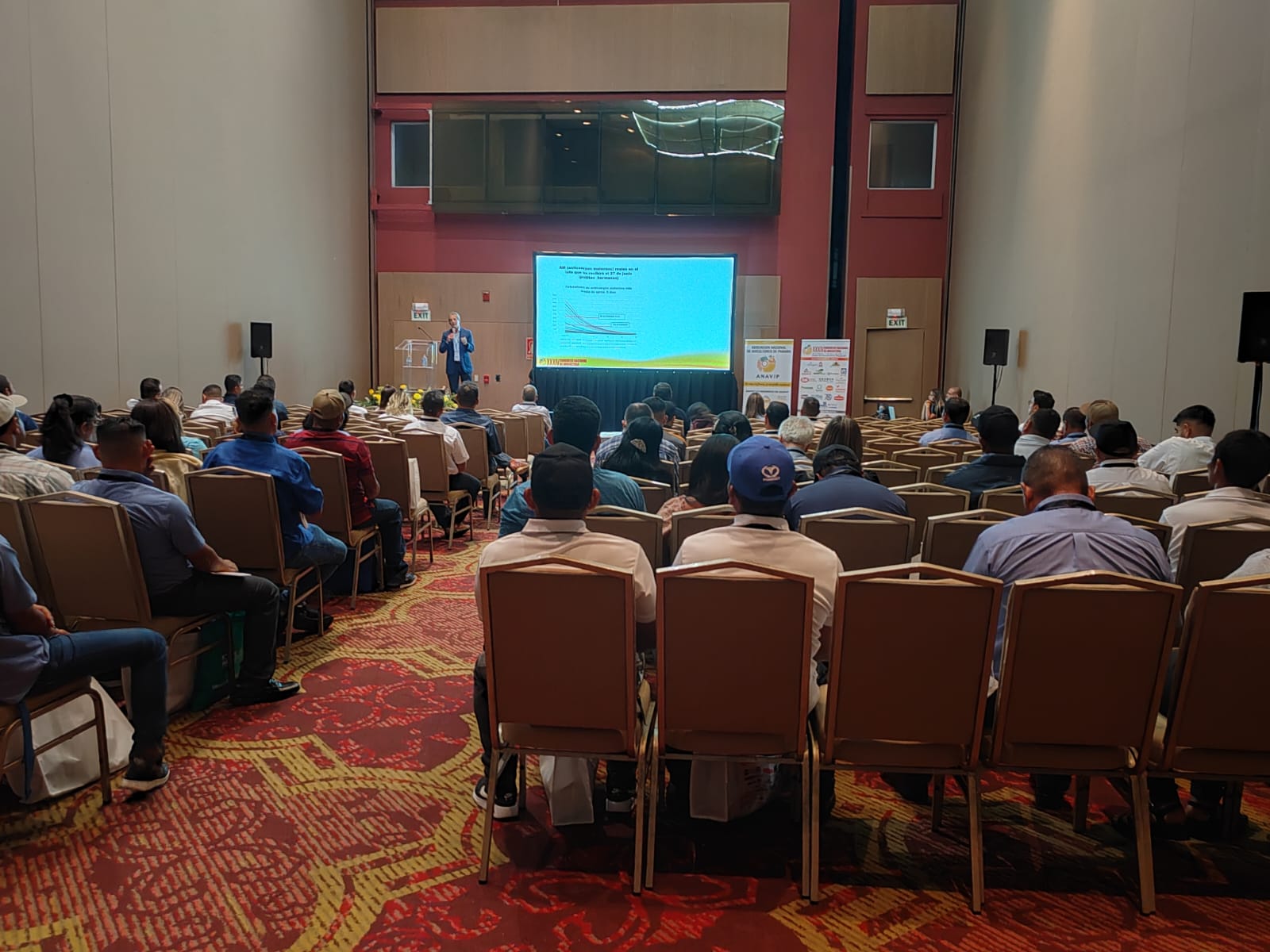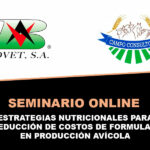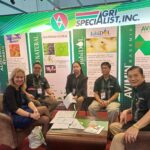Biovet Conference at ANAVIP 2024
Intestinal transit, integrity of the digestive mucosa and dysbiosis

During ANAVIP 2024, Aldo Ramírez, the technical representative of Biovet, presented the talk called: “Intestinal transit, integrity of the digestive mucosa and dysbiosis.” The conference took place on March 1, at 4:20 pm Panama time and more than 60 people attended.
The problems faced by the poultry industry were discussed due to the needs and demands that exist in terms of production parameters, which are reflected in the high intake of chickens. According to intestinal physiology, when there is a greater content of food and water in the intestine, this stimulates peristalsis, which generates faster transit in the digestive tract, producing poor absorption of nutrients from the diet, but also, generating feces with a greater presence of humidity, which causes wet litters, plantar and respiratory problems, coccidia etc.
The properties of activated diatomaceous earth of the genus Thalassiosira and Actinotychus were presented, which are exoskeleton of algae, they have a great capacity for water absorption due to the activation process carried out, which increases their absorbent capacity.
The reduction of water in the lumen slows down or reduces the speed of feed transit in the digestive tract, generating greater absorption of nutrients, resulting in reduced feed conversion and mortality and increased body weight, also due to the improvement of % nutrient digestibility.
These activated diatoms with the ability to slow down rapid intestinal transit in birds are present in Alquerfeed Diatom, a product developed by Biovet S.A.
Pronutrients, innovative technology to maintain intestinal welfare
At the same time, other factors that affect the intestinal mucosa were shown, as well as their specific effect on it and the preventive actions that have to be carried out to reduce the effect of the different variables that occur in the production processes. One of the actions mentioned is the use of intestinal conditioner pronutrients, which help the epithelium to renew more quickly, strengthening the tight junctions of the enterocytes, generating intact permeability, and increasing the metabolic rate so that generate greater absorption of different nutrients.
On the other hand, the review of the mentioned points was closed by talking about dysbiosis, which is the alteration of the intestinal bacterial flora. Continuing with the sequence of the presentation, the factors that alter intestinal integrity were shown, how intestinal peristalsis increases, which leads to the presentation of dysbiosis, which can lead to bacterial enteritis, digestive mycosis, protozoan parasites etc. Based on these different presentations and diagnoses, it is proposed that its prevention be focused on a single common cause, which is dysbiosis. By strengthening the intestinal mucosa, stimulating the activation of M cells, B and T lymphocytes, in addition to the control of pathogenic bacteria, and enhancing the probiotic flora, through the use of intestinal optimizer pronutrients, notable benefits are obtained for intestinal welfare and the productive parameters.
Different tests carried out in universities and field work were shown, where the mechanism of action of pronutrients could be verified with techniques such as Western blot and Volcano plot, part of the bioinformatics tools for the development of these concepts on the metagenetic mechanism of action of the pronutrients.
Pronutrients help us maintain adequate intestinal health and welfare to reduce the effect of the different problems that arise in production processes.
Intestinal conditioner pronutrients are marketed as Alquernat Nebsui, while intestinal optimizer pronutrients, another type of these active ingredients that reinforce the local immunity of the intestine, are marketed as Alquernat Zycox.





